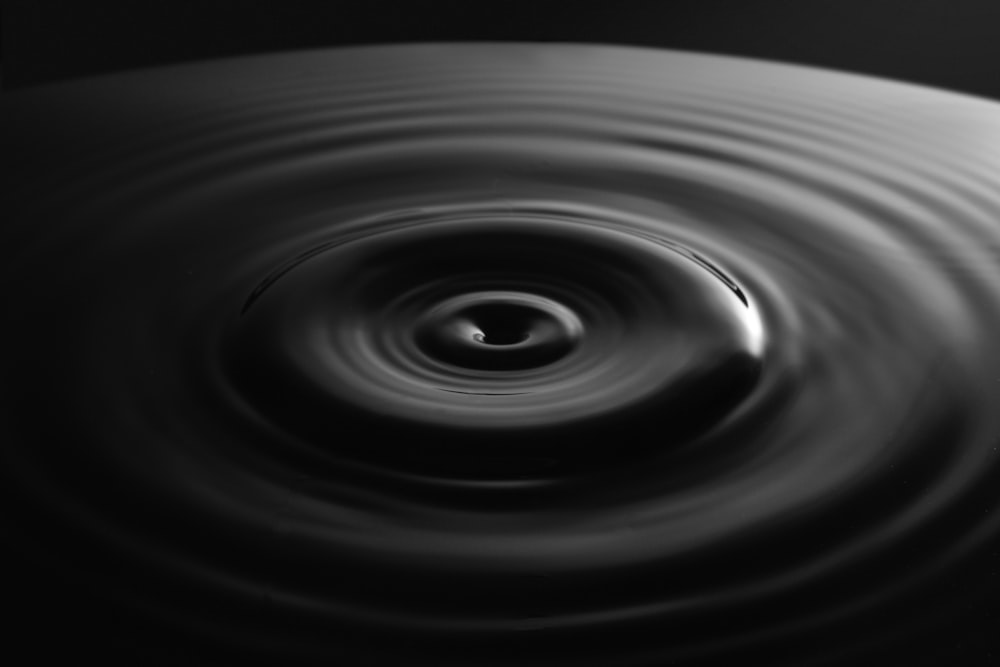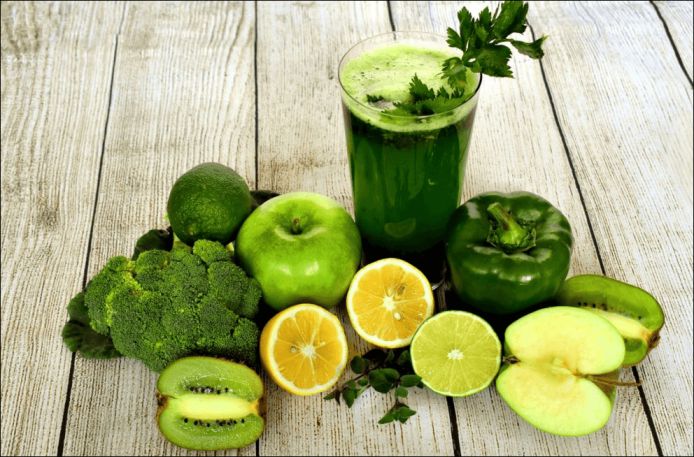Last Updated on November 9, 2023 by Fasting Planet
Water Fasting vs. Juice Fasting. Fad diets: they’re a trend that some people can’t help but be curious about, even if most of the time, they don’t work. When a diet has Beyonce’s stamp of approval as fasting does, though, then people tend to give it more attention.
Water fasting and juice fasting certainly deserve that attention. When done safely, these can be two very viable means of losing weight. What’s the difference between the two? Who advocates for diets like these? Are there benefits to fasting? How do you do it safely?
We’ll answer all these questions for you now.
What Is Water Fasting?
As the name might suggest, water fasting is when you consume a simple diet of only water. There are no solid foods…actually, there are no foods at all. Since we human beings need food for survival, this diet can’t go on for long. In many instances, a water fast doesn’t stretch beyond the 72-hour mark. Only those who have medical supervision should attempt a water fast beyond that point.
That’s because during a water fast, your body isn’t getting any calories. Water is zero calories, and the feeling of fullness you get is only because there’s water sitting in your stomach.
What Is Juice Fasting?
If you’ve heard of or even tried a juice cleanse, then you’ve done a juice fast before. This is just like water fasting, except instead of water, mostly all you consume is juice.
Now, the type of juice you drink matters. You shouldn’t buy the sugary stuff from the grocery store for this type of fast. Instead, what many juice fasters do is make their own juice from both vegetables and fruits. This is pure juice, then. Drinking this juice allows for you to get more phytonutrients, minerals, and vitamins compared to buying juice off grocery store shelves.
Since your body is still getting calories, unlike a water diet, juice fasts can go on for much longer. Some people have done juice fasts that have lasted 60 days, such as Joe Cross. He produced a documentary called Fat, Sick, and Nearly Dead as well as published a book entitled The Reboot with Joe Juice Diet: Lose Weight, Get Healthy and Feel Amazing. The book became a best-seller. Cross also has a website where he shares juicing tips and produce prep advice.
What Are the Differences Between the Two?
There are two primary differences between water fasting and juice fasting, both of which we touched on above. The first is how many calories you consume during the fast. With a water fast, you never consume any calories since water has no calories. With a juice fast, you are consuming calories, although it’s often nothing significant, at least not most of the time. You do have to watch your sugars, as too many can lead to an unexpected calorie boost.
The second big difference is the length of both fasts. Water fasts rarely go on longer than three days. The body needs calories for energy. Data from Medline Plus (through the National Institutes of Health) published on Livestrong says that getting as few as 500 calories daily is too little.
At this point, the body is in starvation mode. You may experience electrolyte imbalances, malnutrition, constipation, and dehydration. In severe cases, electrolyte imbalances could be responsible for deadly heart arrhythmias.
While dehydration is admittedly unlikely since you’d be drinking lots of water, without salts in your body, electrolyte imbalances could certainly occur. That’s why water fasts have to be much shorter than juice fasts.

What Are the Benefits of These Fasts?
Let’s start with the benefits of a water fast. The biggest and most obvious is that you’ll shed some weight. After all, you’re not consuming any calories for days at a time, so that will surely lead to weight loss.
Besides weight loss, you can also detox with a water fast. When you’re drinking only water, your body will begin to filter through unhealthy cell parts, pushing these out with the water. This is a process known as autophagy.
The National Center for Biotechnology Information (NCBI) has published several studies supporting that water fasts could lessen your chances of developing diabetes, heart disease, and even certain cancers.
What about juice fasts? These are beneficial in their own way. The first benefit is that again, you will more than likely lose weight. This is of course if you drink natural juices (the types of which we’ll explain later in this article). Sugary store-bought juices will not be nearly as effective.
You also detoxify your body with all the fluids being put into your system consistently. There have been some juice fast supporters who even believe that they may be less likely to get certain types of cancers with this diet. Unlike water fasts, it’s uncertain at this time if there’s a link between cancer prevention and juice fasts.
What juice fasts do have over water fasts is a healthy jolt to the immune system. All those vitamins and nutrients you’re getting from the juices can help your health. That’s not to mention that many vegetables and fruits are recommended for consumption during the flu and cold season (that’s now, by the way). These include apples, spinach, broccoli, tomatoes, blueberries, and oranges.
Who Advocates for Them?
As we mentioned before, Joe Cross is one of the biggest advocates for juice fasting. According to Cross himself, he had an autoimmune disease and was also battling with illness and obesity before he tried juice fasting for himself. When he partook in a juice fast for 60 days, he was able to shed 100 pounds.
He was hooked and made the abovementioned documentary on his astonishing progress. Now he promotes Guided Reboot Programs, where a patient works with a certified nutritionist in an online environment to shed weight through juice fasting and other means. Programs can last as little as 15 days or double that.
As for water fasting, Dr. Alan Goldhamer is a huge proponent. Long-term readers of this blog will remember Goldhamer as a major SOS-free vegan supporter as well.
In the interview below, Goldhamer speaks extensively about water fasting.
He calls water fasting a “biological adaptation” that has gone on for many centuries to preserve our society. “The key to fasting is the brain’s ability to shift from burning its primary fuel glucose into brain ketones, which are a byproduct of fat metabolism,” he says.
“And because of the body’s ability to do that, we can shift our focus from burning glucose or proteins into burning fat. So by the end of the second week of fasting, the majority of calories are actually being derived from fat,” Goldhamer adds. “It’s a wonderful, unique situation. Not all animals can do that.”
Goldhamer does indeed believe in prolonged, medically-supervised water fasting, as you’ll see here in this video Q&A with Dillon Holmes of Well Your World.
He says in this interview that “fasting is therapeutic but also diagnostic.” Sometimes, Goldhamer mentions, it’s necessary to prolong fasting to treat or alleviate certain conditions. He aims to “fast to stability” for those who have multiple conditions like being overweight, high blood pressure, and the like.
Guidelines for Safe, Successful Fasting
If the information in this article has inspired you to try a water or juice fast, then congratulations! Of course, your safety is paramount when undergoing either of these diets. That’s why we’ve provided guidelines for safe, successful water and/or juice fasting.
Water Fasting
If you’ve never fasted before and you’re interested in trying a water fast, then we recommend doing one that’s the shortest duration possible. That’s 24 hours. While you might not get as many weight loss benefits, you can always expand your duration as you do yet another fast.
It’s recommended that each day you’re getting plenty of water, at least two liters. If you can, drink three liters. Sometimes side effects crop up in the midst of the fast. These may include dizziness and weakness. For that reason, it’s not advised you drive or use heavy machinery until the fast is over.
Once you stop fasting, you may get very hungry and want to eat a lot. Doing so can lead to bodily distress. Ease into eating foods with mini meals and calories in liquid form, like juices and smoothies.
Do be aware of refeeding syndrome as well. This rare condition occurs when your body’s electrolyte and fluid levels quickly fluctuate. It can be deadly. The longer you’re fasting, the longer you should wait to reintroduce regular meals.
Juice Fasting
When drinking juice as part of a fast, you should try to enjoy juices in as many colors as possible. Here’s how the colors break down:
- Purple: Blueberries and purple grapes are the primary ingredients of purple juice.
- Green: Celery, cucumber, and kale make up the backbone of green juice.
- Yellow: Yellow bell pepper and pineapple are the star ingredients of yellow juice.
- Orange: Sweet potatoes and oranges themselves can tint juice orange.
- Red: Beets and tomatoes can make juice red.
Joe Cross himself wrote a starter juice fast diet plan that lasts only three days. Do keep in mind that this diet includes water consumption, which is to prevent dehydration. Here’s the diet you should follow for those three days.
When you first get up in the morning, mix ginger or lemon with water. Drink eight ounces of the stuff. For breakfast, you’ll want to prepare your favorite red juice, drinking 16 ounces of it. Orange juice is a suitable alternative.
If you start to get peckish by the middle of the morning, then you can consume vegetable broth or coconut juice. Cross recommends 16 ounces. Then, when lunchtime arrives, you’ll want to reach for your green juice. Again, drink 16 ounces.
If you want a mid-afternoon snack, then more red juice will do. You can also sip yellow juice at this point. No matter which you pick, make sure you consume 16 ounces.
Once you get home, dinner will be more green juice, another 16 ounces. Dessert can be orange or purple juice, but it too should be 16 ounces. Finally, as you wind down for bed, consume a glass of herbal tea.
You may notice that you have diarrhea or constipation as well as dizziness and fatigue as you start the juice cleanse. This is normal and will typically pass with time. That said, there are several symptoms to be aware of that are much more serious. These include intense bouts of dizziness, low blood pressure, excessive diarrhea, vomiting, and fainting.
If you have any of the above symptoms, reach out to your doctor. Stop the juice fast until you get medical permission to continue.
Conclusion
Water fasts and juice fasts may get celebrity endorsements, but that does mean they work? Actually yes, they can. Dr. Alan Goldhamer, one of the biggest names in SOS-free veganism, approves water fasting. This is when you drink nothing but water for several days. He says it goes back to the times of our ancestors, who might have had no choice but to consume water if food wasn’t widely available.
Juice fasts give you more variety, as you can consume vegetables and fruits in a rainbow of colors. Joe Cross was able to lose significant weight with a 60-day juice fast. Today, he advocates for others to do the same.
Whether you choose a water fast or a juice fast, your safety is paramount. Follow the directions as outlined above and always stop if you feel your symptoms are bordering on unhealthy or dangerous. Good luck!

